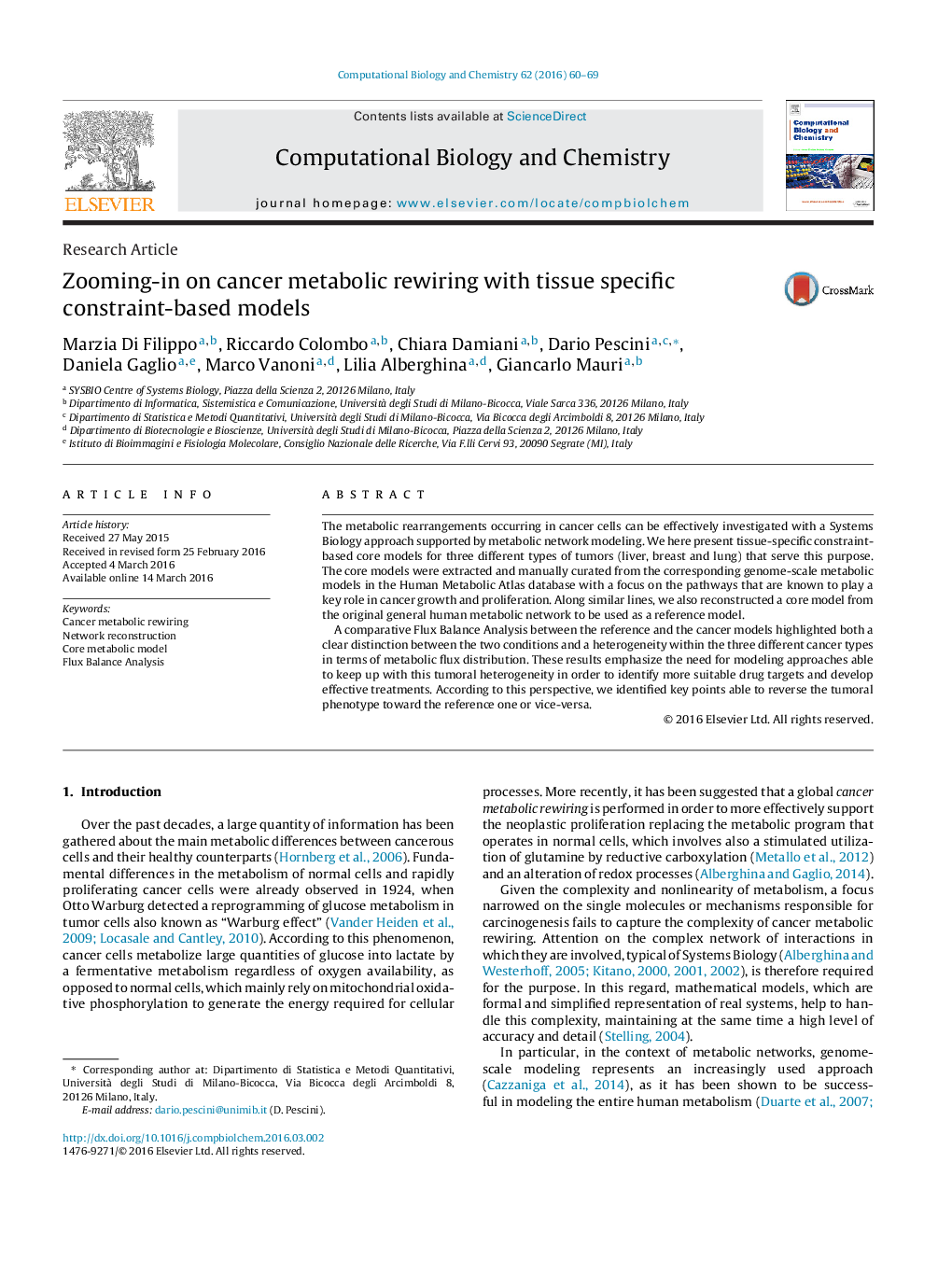| Article ID | Journal | Published Year | Pages | File Type |
|---|---|---|---|---|
| 14914 | Computational Biology and Chemistry | 2016 | 10 Pages |
•Genome-scale metabolic models are comprehensives but difficult to control and to analyze.•We manually reconstructed core models that zoom-in on cancer metabolic rewiring, focusing on most harmful neoplasias.•We estimated the optimal flux distribution for each of the core metabolic models with FBA.•We observed heterogeneity in flux values between reference and cancer conditions, but also among the different cancers.•We identified a set of reactions that is responsible for the reversion of cancer phenotype.
The metabolic rearrangements occurring in cancer cells can be effectively investigated with a Systems Biology approach supported by metabolic network modeling. We here present tissue-specific constraint-based core models for three different types of tumors (liver, breast and lung) that serve this purpose. The core models were extracted and manually curated from the corresponding genome-scale metabolic models in the Human Metabolic Atlas database with a focus on the pathways that are known to play a key role in cancer growth and proliferation. Along similar lines, we also reconstructed a core model from the original general human metabolic network to be used as a reference model.A comparative Flux Balance Analysis between the reference and the cancer models highlighted both a clear distinction between the two conditions and a heterogeneity within the three different cancer types in terms of metabolic flux distribution. These results emphasize the need for modeling approaches able to keep up with this tumoral heterogeneity in order to identify more suitable drug targets and develop effective treatments. According to this perspective, we identified key points able to reverse the tumoral phenotype toward the reference one or vice-versa.
Graphical abstractFigure optionsDownload full-size imageDownload as PowerPoint slide
